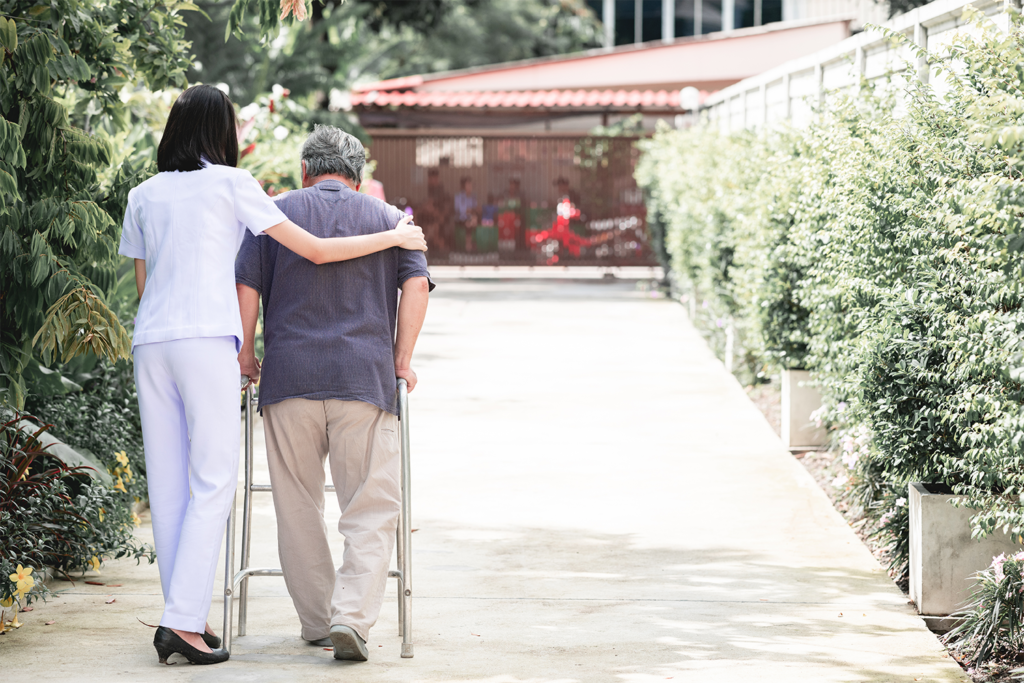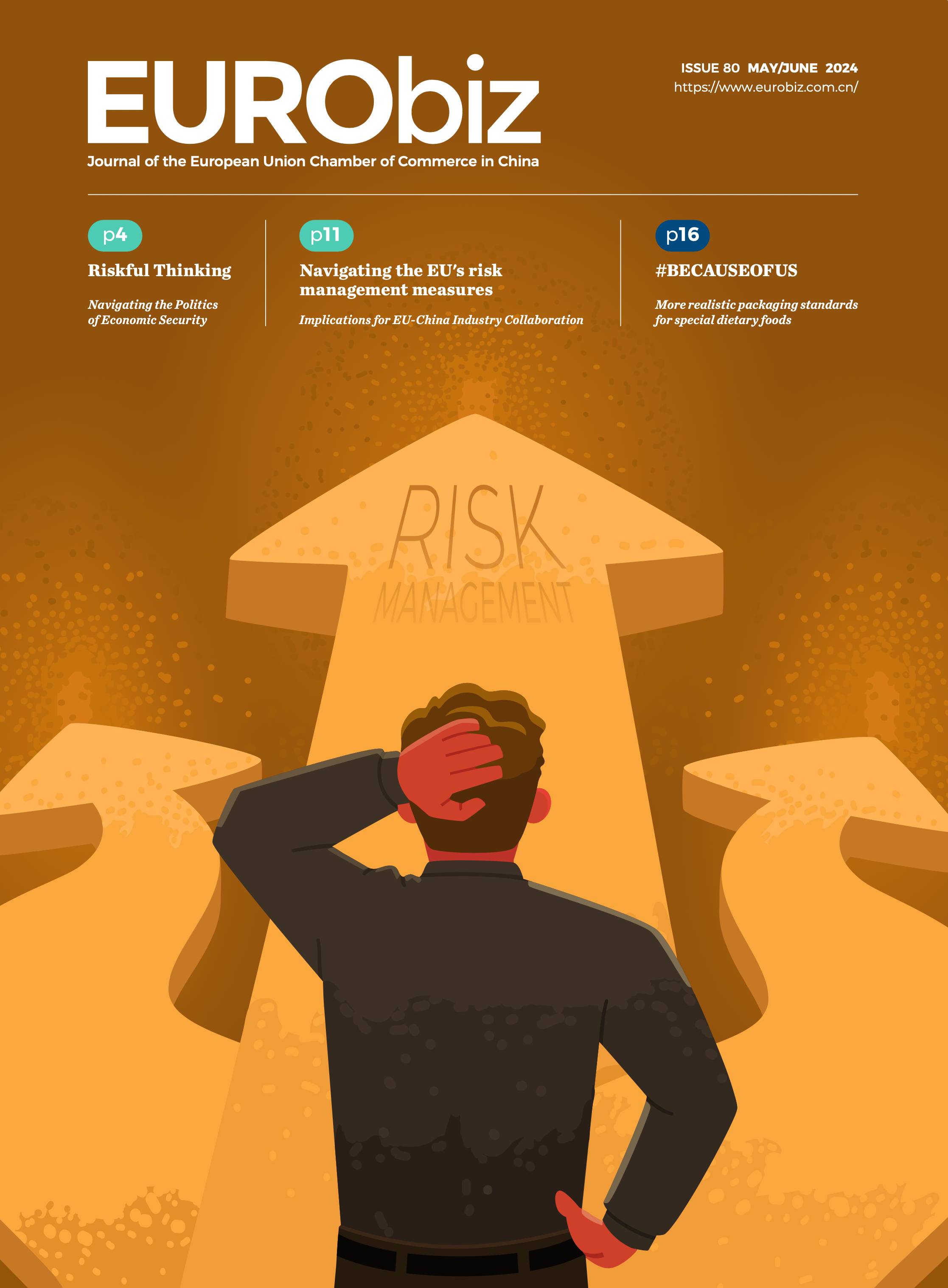
A proposal for monitoring the safety of vulnerable empty nesters
Follow-up home care, as in care provided at home either post-surgery or post-treatment, is a vital part of the treatment process. In view of China’s ageing population, an increasingly elderly clientele will be in demand of such services. Dr Hau-Tek Koh, chief medical officer (Dy), Jiahui Health, examines how healthcare providers can and have to adjust to these changing demographics, and the innovative ways/technologies that can facilitate care and the patient’s safety at home.
Case study
Mr Lin is a 77-year old widowed Chinese gentleman who had severe low back pain, and underwent a major spine surgery, which turned out successful. He stayed in the hospital for several days post-operatively for rehabilitation before being discharged home. It became clear that Mr Lin lives alone in the suburbs of Shanghai, while his son lives and works in Hong Kong, and so Mr Lin would need to be discharged home directly from the hospital. He was still experiencing some pain, as his operation was a major one. He also has an existing heart condition, which did not need surgery at that time. When Mr Lin was eventually discharged, he ended up staying at home alone for the first two nights while his son tried to arrange for a flight back to Shanghai. Such a situation is worrisome from a safety perspective, as an elderly person with an existing heart condition may not be as independently mobile after a major operation.
Over the last 30–40 years, China has rapidly progressed economically, with significant socio-demographic changes following the one-child policy. This has led to elderly parents staying in their home cities, while their offspring study, work or live in another city or even another country. The ageing of China’s population has already started, and the much more mobile younger generation in search of educational and/or employment opportunities in a globalised world moves families physically apart more than ever before.
Furthermore, culturally, it is not considered acceptable in China for the elderly to be in senior care homes. People in this situation are seen as having been abandoned by their offspring, and the children perceived as un-filial.
Home monitoring
A step-down care system is needed to address the needs of those living alone (elderly or otherwise); a group that will increase dramatically in the near future. A home care monitoring system that leverages the latest technology can fill this demand gap in enhancing safety and create peace of mind for families.
Such home monitoring would consist of a system which, with consent, uses technology such as sensors located strategically on the bedroom and main doors, toilet flush, refrigerator, and windows. Combining these sensors with CCTV cameras would allow the elderly living at home to be “looked after”.
The system links the caregiver (the son in the case above)—who could be physically far away—and a central operations and command set-up, facilitating the capacity to monitor multiple people at the same time. Both the caregiver and the command centre staff have an app linked to the sensors/CCTV, which will allow them in an instant to dispatch help and early assistance to the elderly person if a problem arises.
Home care
Elderly falls are common at home—typically from slippery bathroom floors or dizziness—causing fractures and vastly reducing the ability of the senior to move to get help independently. This may mean an injured elder could be left without assistance for a long period of time. A monitoring system would allow help to be rendered early and quickly. Many seniors also have multiple medical conditions, which can lead to heart attacks, strokes and other acutely debilitating morbidities.
Home care and physical assistance need to be responsive and, above all, safe and reliable. Some large security firms in other Asian countries, for example Japan, have extended their services from physical security to the provision of home care; several even own and operate senior care homes.
European companies with related and potentially synergistic core businesses can tap into their experience gained in other countries in the use of appropriate technology to scale up home-care services. Combining this IT expertise with making certain physical attendees available to the elderly at home can be a simple win-win operational model for China.
For example, the large number of food and parcel delivery workers zooming around cities, forming the last mile in China’s huge logistics network, provide a readily available base to tap into for physical attendance on any seniors in need at home. Background checks must be performed rigorously on these workers willing to double up as attendants to the elderly and recorded for safety and accountability in order to ensure peace of mind for customers.
The operations and command centre can be linked up through mobile phone and GPS tracking to any qualifying delivery workers for dispatch when needed. The system could also link up to a pre-arranged nearest medical facility or ambulance service should the need arise.
The operational model above is not that offered by typical healthcare delivery organisations like hospitals or medical groups, as this is beyond their core business and expertise.
It would be relevant industry players like security firms, technology developers, logistics and delivery companies that may find home monitoring and home care a synergistic service line to their current core businesses. This would facilitate lower start-up costs and, just as important, fill an existing supply gap in society to serve an increasing demand.
Perhaps the next time 77-year-old Mr Lin gets discharged from hospital, he will have a simple yet effective system to monitor him and render home care if needed.
Dr. Hau-Tek Koh draws from extensive experience in strategy and organisational management for healthcare institutions in China. As Chief Medical Officer (Dy) with Jiahui Health in Shanghai, he oversees clinical services, operations and governance, as well as physician training. Jiahui Health is an integrated healthcare ecosystem consisting of a 500-bed general hospital, medical clinics, a wellness center, and a team of healthcare professionals from across the globe. Jiahui Health maintains a strategic partnership with Massachusetts General Hospital, bringing leading global healthcare resources to China. Find out more at: https://www.jiahui.com/en


Recent Comments